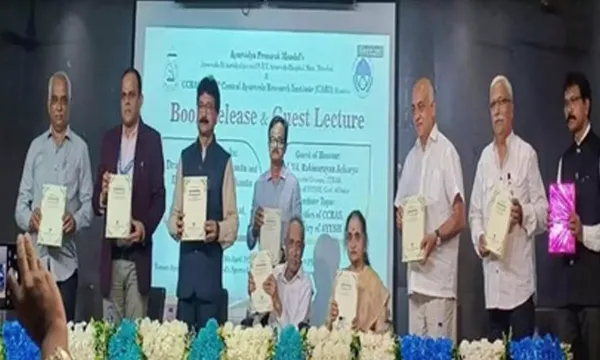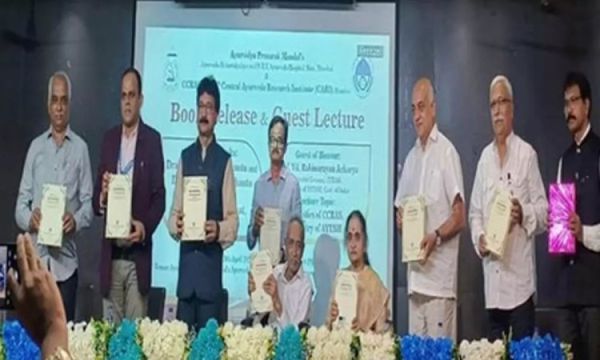
On Wednesday, the Ministry of Ayush’s Central Council for Research in Ayurvedic Sciences (CCRAS) said that it has restored two important and uncommon Ayurvedic manuscripts, enhancing India’s literary legacy in traditional medicine.

The RRAP Central Ayurveda Research Institute in Mumbai hosted a ceremony to present the manuscripts Dravyaratnakara Nighaṇṭu and Dravyanamakara Nighaṇṭu.
According to Prof. Vd. Rabinarayan Acharya, Director General of CCRAS, New Delhi, “these texts are not just historical artifacts—they are living knowledge systems that, when studied and applied thoughtfully, can transform contemporary healthcare approaches.”
Acharya emphasized how crucial these revivals are to connecting India’s traditional knowledge with modern research methodologies.
It is anticipated that students, researchers, academics, and Ayurvedic practitioners would find these critical editions to be very helpful tools that encourage more scholarly investigation and in-depth interaction with India’s traditional medicinal literature.
Mudgala Paṇḍita wrote Dravyaratnakara Nighaṇṭu around 1480 AD. The eighteen chapters of the previously released dictionary include comprehensive information on drug synonyms, therapeutic effects, and medicinal qualities.
Up until the 19th century, it was a work that Maharashtra used extensively. It documents several new medicinal ingredients with plant, mineral, and animal sources while drawing on traditional Nighaṇṭus such as Dhanvantari and Raja Nighaṇṭu.
However, Bhisma Vaidya’s Dravyanamakara Nighaṇṭu functions as a stand-alone appendix to the Dhanvantari Nighaṇṭu.
The texts only address homonyms of plant and medication names, a complicated field of research that is essential to Ayurveda.
The work has been carefully revised to improve its usefulness for researchers of Rasashastra, Bhaishajya Kalpana, and ancient Ayurvedic medicine. It consists of 182 lines and two colophon verses.
Renowned manuscriptologist and seasoned Ayurvedic specialist Dr. Sadanand D. Kamat of Mumbai translated and critically edited the manuscripts.
Additionally, Kamat is renowned for his authoritative writings on Dhanvantari Nighaṇṭu, Saraswati Nighaṇṭu, and Bhavaprakasha Nighaṇṭu.